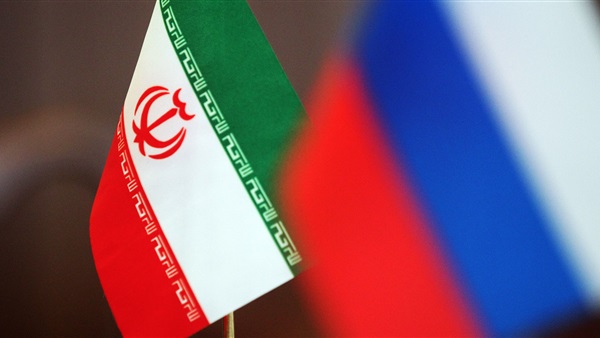Mohammed Abdul Ghaffar
In reaction to the US sanctions against Tehran, Moscow has called the sanctions “unprecedented” and denied all signals the United States seeks to send to Tehran about building serious dialogue between the two sides.
Russian Deputy Foreign Minister Sergei Ryabkov said in a press statement on Tuesday, June 25 that the new US measures against the Iranian regime fundamentally invalidate Washington’s statements about its openness and continued readiness for dialogue with Tehran, noting that there can be no constructive diplomatic dialogue between Iran and the United States America under threat of arms.
In a related context, the Russian Foreign Ministry also issued a statement on Tuesday, in which it pointed out that Washington is working to “demolish the remaining bridges” with regard to the renewed Iranian crisis, noting that although the United States has confirmed its commitment to dialogue with Iran, its imposition of sanctions on high-ranking Iranian military personnel, as well as Iran’s Supreme Leader Ali Khamenei, is not consistent with such commitments.
The Russian Foreign Ministry added that the United States has the conviction that it is the party that decides the fate of the world and therefore seeks to impose sanctions on any party that “rejects the dictates of the United States,” pursuing an increasingly aggressive policy against them.
US President Donald Trump had announced that his country will impose significant economic sanctions against Iran following Tehran’s downing of a US drone last week. On Monday, June 24, Trump announced the imposition of sanctions on Ayatollah Khamenei, Foreign Minister Mohammad Javad Zarif, and eight senior commanders of the Revolutionary Guards.
Regarding the latest Russian position, Iranian affairs expert Dr. Nurhan Anwar said that Russia has always been an ally and supporter of Iran in international forums, preventing any criticism of Iran in the Security Council.
Russia believes that the escalation of sanctions increases the strength and influence of the hardline camp, but this is baseless because after the regime has been in power for 40 years, the Iranian people are calling for the death of the guide, and tensions are growing daily due to the repression adopted by the Khamenei regime.
The growing strength of the hardline camp – represented by the Revolutionary Guards – shows that the nuclear agreement has not reduced the strength of this camp, but sanctions are important, because inflation will bring down the regime after a while.
The expert pointed to the importance of sanctions at the moment, especially as the US Treasury’s decision to impose sanctions on members of the Revolutionary Guard as well as the Iranian leader is a symbolic blow to the top of the power pyramid in Iran and the biggest financial blow to the system, with news having circulated that Khamenei possesses $200 billion.
Russia is trying to help Iran in various forms, both through energy and construction and finally the oil-for-food deal, which the US is trying to prevent by imposing sanctions on any individual or entity trying to invest or open markets with Iran.
Political complexities
Iran has long been one of the main points of contention between Russia and the United States, said Firas Elias, a specialist in national security and Iranian affairs. This is especially the case when it comes to the developments in the Syrian file and finding a way for a political solution to the crisis, which has lasted nearly nine years without any real initiatives to solve the problem.
The tripartite security meeting held on Tuesday, June 25 in Jerusalem between US National Security Advisor John Bolton and his Russian and Israeli counterparts was a qualitative leap in the context of ongoing dialogue on the future of the Iranian military presence in Syria, Elias added, which was confirmed by Israeli Prime Minister Benjamin Netanyahu’s remarks on the sidelines of the forum.
“We are working to destabilize the Iranian presence in Syria and to prevent the transfer of Iranian weapons to Hezbollah,” Netanyahu said.
This tripartite meeting coincides with other efforts led by US presidential advisor Jared Kushner at the Manama workshop for peace in the Middle East, which aims to find a solution to the conflict between the Palestinians and Israelis, but in essence is a project to defuse the various crises in the region, which includes dealing with the Iranian file.
Elias noted that what was striking about this tripartite security meeting were the statements made by Russian National Security Council Secretary Nikolai Patrushev when he said that Russia and Iran are working together to combat terrorism and stressed his country’s support for the withdrawal of foreign troops from Syria, pointing out that the recent US sanctions imposed on Iran would undermine all efforts for peace in the Middle East.








































admin in: How the Muslim Brotherhood betrayed Saudi Arabia?
Great article with insight ...
https://www.viagrapascherfr.com/achat-sildenafil-pfizer-tarif/ in: Cross-region cooperation between anti-terrorism agencies needed
Hello there, just became aware of your blog through Google, and found ...